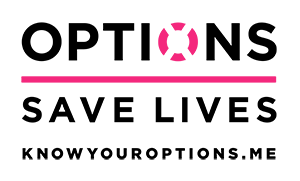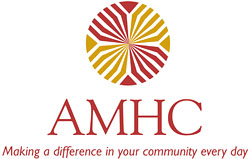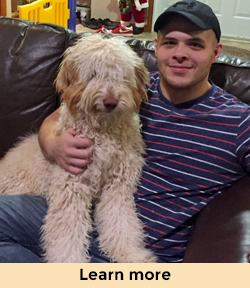Substance use disorders occur when the recurrent use of alcohol and/or drugs cause clinically and functionally significant impairment, such as health problems, disability, and failure to meet primary responsibilities at work, school, or home. A substance use disorder can occur along with other mental illnesses and often interferes with treatment. If you are unable to stop using drugs or alcohol on your own, you may need treatment. AMHC offers substance use treatment and recovery-focused services for individuals, families, and affected others.
Unless otherwise noted, for services please contact AMHC’s Call Center 1-800-244-6431.
Caribou, Houlton, Calais, and Machias
AMHC offers four substance use peer recovery centers staffed by peers to provide participants in recovery with support services which includes mentoring, education, and resource provision.
Roads to Recovery, 1 Water Street, Caribou, 207-493-1278
Aroostook Recovery Center of Hope, 106 Main St, Suite 13, Houlton, 207-254-2213
DownEast Recovery Support Center, 311 Main Street, Calais, 207-952-9279
DownEast Recovery Support Center, 11 Free Street, Machias, 207-259-6238

The State of Maine OPTIONS (Overdose Prevention through Intensive Outreach, Naloxone & Safety) initiative can help our community members get connected to substance use treatment & recovery services. It is free and confidential. The purpose is to promote drug prevention and harm reduction strategies to connect people directly to treatment and/or recovery services, and to distribute naloxone.
Aroostook County Liaisons:
Marshall Van Hollow, mvanhollow@amhc.org
Justin Martin, jmartin@amhc.org
Hancock County Liaison:
Nick St. Louis, nstlouis@amhc.org
Washington County Liaison:
Eric "Joe" Finnemore, efinnemore@amhc.org
Any community member can make a direct referral on behalf of an individual struggling with substance use, simply fill out the Community Referral Form and an OPTIONS Liaison will follow up. Options Community Referral Form
Presque Isle
For more information and referrals please call 207-325-4727.
AMHC's Residential Treatment Facility (RTF) located at 176 Academy Street in Presque Isle is an intensive, structured care facility offering 28-day/24/7 treatment. The program involves daily individual and group therapy, Sunday family treatment sessions, weekly coordination meetings with community providers, and skill-building activities crucial for daily recovery. The recent expansion of the facility has increased bed capacity from 12 to 18, enabling more individuals to access this comprehensive treatment.
This intensely structured program includes seven hours of group treatment daily, covering a variety of topics on substance use disorder, recovery enhancement and relapse prevention as well as weekly Family Group sessions. Local recovery communities including Alcoholics Anonymous and Narcotics Anonymous have on-site weekly and monthly meetings, allowing clients to learn about these supportive resources.
RTF clients are removed from the daily distractions of television and all electronics. Their days are filled with therapeutic group services, biblio-therapy (the art of using books to aid people in solving the issues they are facing), and therapeutic journaling. Residents are assigned chores to help them understand the importance of attending to the responsibilities of daily living. In addition, clients are encouraged to exercise daily.
Integrated services are brought in to provide support, information and education to the residents including Pines Health Services; AMHC Sexual Assault Services; Hope and Justice, a program that provides domestic abuse support; as well as Roads to Recovery Community Center in Caribou and Aroostook Recovery Center of Hope in Houlton.
Calais, Machias, Ellsworth
AMHC works with the Adult Drug Treatment Courts in Washington and Hancock counties to provide substance use treatment and recovery support for individuals in the criminal justice system.
Fort Kent, Madawaska, Caribou, Presque Isle, Houlton, Calais, Machias, and Ellsworth (unless otherwise noted)
To access outpatient services please contact AMHC Call Center 1-800-244-6431.
Assessment for Substance Use Disorder
When an individual comes to AMHC for treatment, an initial assessment will be done to identify the most appropriate level of care. AMHC follows the American Society of Addiction Medicine (ASAM) model that supports assessing what stage of interest an individual is ready to enter substance use treatment services. This allows the counselor to develop treatment plans that match what the individual is seeking toward making changes in their lives. For more information on the ASAM model please visit https://www.asam.org/asam-criteria/about-the-asam-criteria.
Individual and Family Counseling
Clients learn and practice recovery strategies, build interpersonal skills, and reinforce and develop social support networks. Family members learn what their role can be to support recovery.
Intensive Group Counseling
Some individuals need a higher level of outpatient services that allows for up to nine hours of group treatment per week versus the traditional one hour of individual treatment per week. These group services are known to be one of the best interventions just short of residential treatment for those individuals who must remain in the community to keep their employment or meet their family needs, such as childcare.
Co-Occurring Mental Health Treatment Counseling
The presence of both a substance use disorder and mental illness is common. Integrating both screening and treatment for mental and substance use disorders leads to a better quality of care and health outcomes for those living with co-occurring disorders by treating the whole person.
Medication for Opioid Use Disorder (MOUD) formerly known as Medication Assisted Treatment (MAT)
Madawaska, Caribou, Presque Isle, Houlton, and Ellsworth (coming soon: Fort Kent and Machias)
AMHC offers MOUD clinic services for individuals in recovery from opioid use disorders. MOUD is the use of medications, in combination with counseling and behavioral health therapies, to provide a “whole-patient” approach to the treatment of substance use disorders.
Opioid Health Home (OHH)
Opioid Health Homes (OHH) deliver integrated office-based Medication Assisted Treatment (MAT), opioid dependency counseling, and comprehensive care management for eligible MaineCare members and uninsured individuals with opioid use disorder. The OHH model utilizes team-based care to support both the individual in treatment as well as the providers delivering care. The team is inclusive of care coordination, health care supports and interventions, and peer recovery.
Driver Education and Evaluation Program (DEEP)
DEEP provides effective, efficient, and meaningful interventions such as education, treatment, and counseling services. The goal of the program is to reduce the incidences of injury, disability and fatality that result from alcohol and other drug related motor vehicle crashes, and to reduce the risk of re-offense for OUI.
Employee Assistance Program (EAP)
A voluntary, work-based program offered by employers and includes free and confidential assessments, short-term counseling, referrals, and follow-up services to employees and their families who have personal and/or work-related problems.
Student Assistance Program (SAP)
A program offered to schools for their students’ confidential assessments, short-term counseling, referrals, and follow-up services to students and their families who have personal and/or school-related problems. School systems can contract for specific behavioral health services to meet the unique needs of their students.


You must be logged in to post a comment.